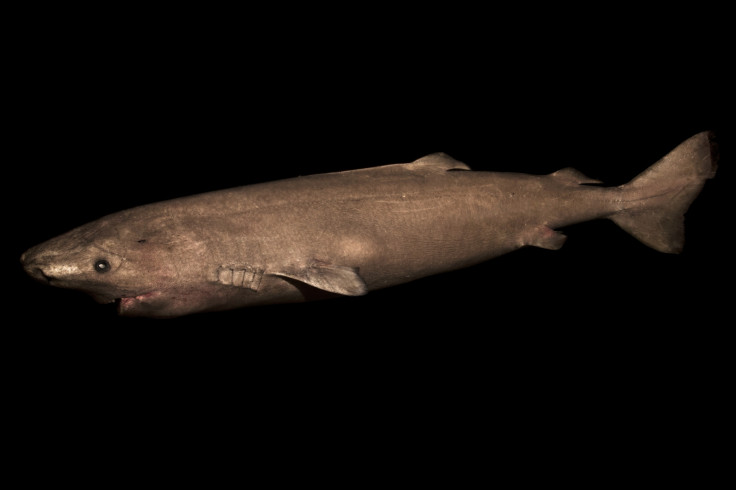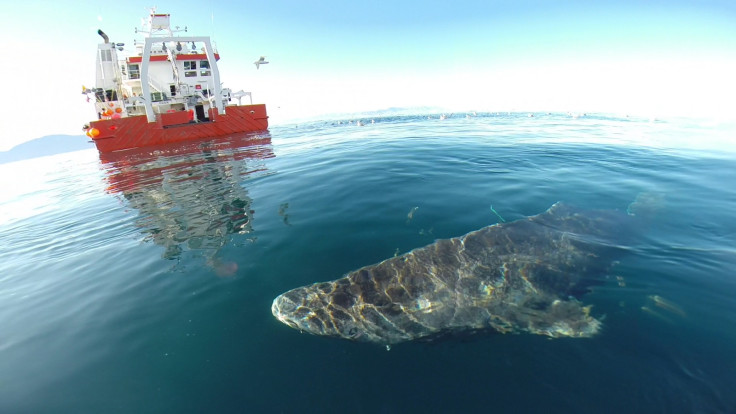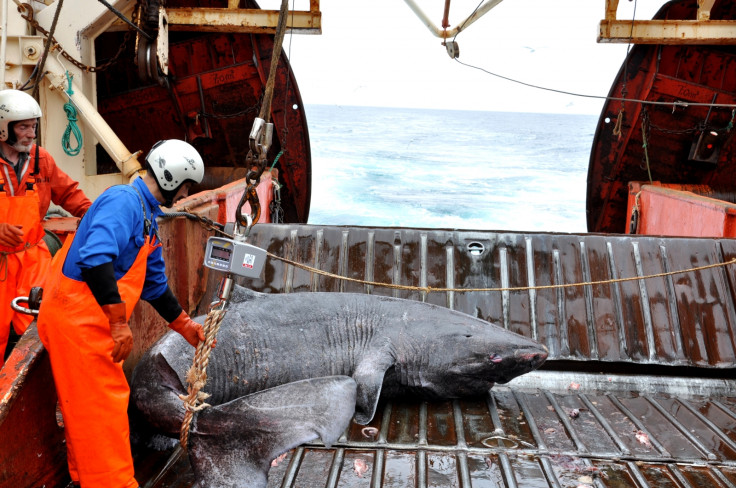Some Greenland sharks alive today were born before the English Civil War
Nuclear bomb data reveals they are world's longest-living vertebrates reaching an age of 400.
Greenland sharks live to 400 making them the world's longest-lived vertebrates, scientists have discovered. By analysing changes caused by nuclear bomb testing in the 1950s, a team was able to accurately estimate the age of 28 female sharks for the first time – finding out the largest (therefore oldest) were 335 and 392 years old.
"The Greenland shark is among the longest-lived vertebrate species, surpassing even the bowhead whale (Balaena mysticetus, estimated longevity of 211 years)," researchers wrote in the journal Science.
"The life expectancy of the Greenland shark is exceeded only by that of the ocean quahog (Arctica islandica, 507 years)."
Greenland sharks are found in the Arctic Seas. They grow at incredibly slow rates of around one centimetre per year and reach a maximum size of five metres (16ft). While this indicates they could have extreme longevity, their biology is poorly understood and traditional aging techniques are unsuitable – normally scientists would analyse calcified tissue, but few samples for Greenland sharks exist.

Read more:
Young blood appears to rejuvenate old mice. But what happens when you give young mice old blood?
Naked mole rats: Scientists edge closer to understanding extreme cancer resistance
Bowhead whale longevity tricks: There is 'no reason humans cannot live to 200'
To work out the age of Greenland sharks, Julius Nielsen, from the University of Copenhagen, and colleagues looked to use a different dating technique – the "bomb pulse" from radiocarbon and atmospheric tests of thermonuclear weapons. The effect of the tests imprinted onto the marine environment and the team used this to look at the eye lens nuclei of 28 sharks that had been caught across the Greenland continental shelf at depths between 132 and 1,200m.
The smallest sharks had the highest radiocarbon levels, indicating they had been most affected by the bombs because they were in their infancy and still developing at the time. Estimating the ages of the biggest sharks, their results indicate an average lifespan of 272 years, with some living to 400 years. Furthermore, they found the sharks only reach sexual maturity at 150.
Researchers said their findings should be taken into account when it comes to protecting the species. "Our estimates strongly suggest a precautionary approach to the conservation of the Greenland shark, because they are common bycatch in arctic and subarctic groundfish fisheries and have been subjected to several recent commercial exploitation initiatives," they wrote.


© Copyright IBTimes 2025. All rights reserved.






















